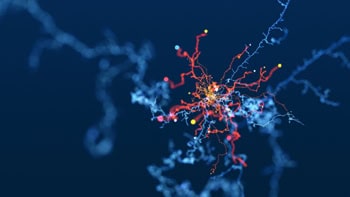Randall Munroe is the creator of the Web comic xkcd.com, which is updated every Monday, Wednesday and Friday with a new comic of "geek humour". An example of his work also illustrates the review of The Trouble with Physics, "Stringing physics along"

What first sparked your interest in physics?
As a kid, my dad would do activities with me that taught me a lot about how things work – measuring how fast you can run by timing yourself over a measured distance, siphoning water up over the side of a fish tank, taking apart pieces of electronics and learning to use the capacitors inside to shock your siblings. I ate it all up. Later, after some unhappy science classes full of animal taxonomies and beakers of goo, I found a physics book and started flipping through it. Light, gyroscopes, waves, forces, levers – it was all the cool stuff from the games when I was a kid. So there was a definite moment when I realized that so much of what is interesting about the world fits under one label – physics.
Where did you study physics and how much did you enjoy it?
I was one of only four physics majors in a graduating class of about 1000 at Christopher Newport University in Virginia. I enjoyed it quite a bit, although I had trouble focusing on a particular area and so ended up with minors in both maths and computer science. Towards the end of the course a professor told me I needed to specialize – I couldn’t have all the candy in the store. The implication was that there weren’t really any jobs that let you flit from one subject to another, making a few contributions here or a smart-alec observation there. At the time, I reckoned he was right. I did my final year thesis on robotics at NASA’s nearby Langley Research Center, and during my last semester that developed into a full-time contract position. I continued to work there through graduation and most of the summer.
When did you start drawing comics?
At school I’d fill notebooks with diagrams, fractals, equations, creepy tables showing the hypothetical dating compatibility of every pair of people in the classroom, that sort of thing. When I was going back through them and scanning pages I started thinking about self-contained drawings that made a point, which led me to putting boxes around sketches and calling them comics. But it really goes back to early elementary school, where I drew literally hundreds of elaborate stick-figure battle murals, with the good guys laying traps and using crazy weapons, and the bad guys trying to storm through them.
Where do you get the ideas for your comic?
Every cartoonist gets this question, and the answers sound pretty trite: “I just think about stuff for a while, and then I’ll have an idea (usually while I’m in the shower) and write it down.” But to some extent that’s really how it works for me. Some of it is observational – you take the things that make you giggle in real life and sharpen them to a point. But the rest I really don’t understand. I’d like to spend some time studying how humour is generated. A rule of thumb is that if we can’t program a computer to do something, we don’t really understand how humans do it. And if there’s one thing we can’t do algorithmically yet, it’s make humans laugh.
How did xkcd.com develop into something that you could do full time?
The readership grew pretty steadily through word of mouth, and eventually one of my NASA contracts expired just as I started selling a lot of T-shirts based on comics from the website. So I decided not to seek another contract and suddenly I was a “professional cartoonist” – one of the weirder turns my life has taken.
How does your physics education help you in creating and running xkcd.com?
I think it helps in much the same way that it helps someone in any physics-related job. It’s a bag of tools – ways to think about situations – that supplies perspective. In my case, I use that perspective to look for funny stuff. There are a lot of people out there with a similar mindset, and it is fun to see my ideas connect with them. And from a more pragmatic standpoint, scientists tend to be big on precision and accuracy. I always know that if I leave out a minus sign in an equation or something, I’ll get a lot of e-mails. So I had better be sure I know what I’m talking about.




